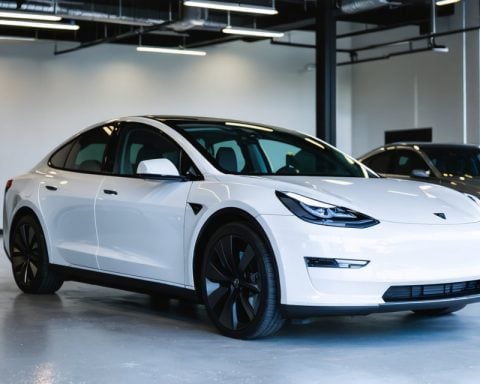- Solid state batteries are set to revolutionize electric vehicles with enhanced range and rapid charging capabilities.
- Automakers like Honda and BYD are advancing towards the integration of solid state technology.
- Honda is developing a demonstration production line, while BYD aims to launch solid state battery-powered vehicles by 2027.
- This innovation represents a significant step towards sustainable and environmentally friendly vehicle technology.
- Solid state batteries promise a smaller ecological footprint and improvements in recycling and disassembly processes.
- Industry leaders emphasize the potential for solid state technology to simplify battery recycling, paving the way for cleaner transportation.
- Overall, solid state batteries offer a promising future for both electric vehicles and environmental sustainability.
In the ever-evolving world of electric vehicles, a quiet revolution is stirring. Solid state batteries promise to transform the driving experience with their potential for greater range and rapid charging. Picture a future where a car’s power source is not only more efficient but also kinder to our planet. This isn’t just a dream—it’s on the horizon.
Imagine sliding into an electric vehicle that charges swiftly, enabling those long road trips without the usual pit stops. This dream, fueled by solid state technology, is gathering momentum, with automotive giants like Honda and BYD racing towards its integration. Honda has already embarked on the creation of a demonstration production line, while BYD lays plans to roll out electric vehicles powered by solid state batteries as soon as 2027. This technological shift is more than just a performance upgrade; it symbolizes a pivotal step towards sustainable innovation.
The allure of solid state batteries extends beyond performance. The technology holds promise for a smaller ecological footprint, addressing the ever-pressing need for environmentally responsible solutions in the auto industry. Vastly improving the lifecycle of the battery, these innovations mark a step forward in recycling and disassembly processes. Visionary leaders in the field, like those at Factorial Energy, emphasize the potential of solid state to simplify battery recycling, heralding an era of cleaner, more sustainable transport.
As the auto industry charges towards this sustainable future, solid state batteries illuminate the path. Shinier, speedier, and greener, they embody a bright horizon for electric vehicles and our planet alike.
Revolutionizing the Future of Electric Vehicles: The Solid State Battery Breakthrough
Unveiling the Potential of Solid State Batteries
Solid state batteries are poised to transform the electric vehicle (EV) industry by offering enhanced energy density, improved safety, and faster charging times compared to traditional lithium-ion batteries. With major automotive brands investing heavily in this burgeoning technology, the promise of more efficient and environmentally friendly vehicles is tantalizingly near. Here’s a detailed exploration into the advantages, challenges, and future outlook of solid state batteries.
Real-World Use Cases: Where Solid State Batteries Shine
– Extended Driving Range: Solid state batteries can potentially double the driving range of EVs, allowing for longer trips without the hassle of frequent recharging stops. This is crucial for mass adoption as range anxiety remains a significant barrier for consumers.
– Reduced Charging Time: Unlike current batteries that can take several hours to charge, solid state solutions can hypothetically reach 80% capacity in just 15 minutes.
– Safety Advancements: By replacing the liquid electrolyte with a solid electrolyte, the risk of flammability is significantly reduced, making EVs safer.
Market Forecast & Industry Trends
The global solid state battery market is expected to grow at a CAGR of over 30% between 2021 and 2030, driven by increased demand from the EV sector, wearables, and portable electronics. Companies like Toyota, Honda, and Samsung are leading the charge with significant investments.
Reviews & Comparisons: Solid State vs Lithium-Ion
– Energy Density: Solid state batteries promise higher energy density, translating to longer vehicle range. However, they are currently more expensive to produce.
– Lifecycle & Sustainability: Solid state batteries typically have a longer lifecycle, offering more charging cycles before degradation sets in.
– Operational Challenges: Currently, the manufacturing process for solid state batteries is complex, and scalability remains a critical challenge.
Controversies & Limitations
– Manufacturing Hurdles: The production process of solid state batteries is not yet fully optimized for mass manufacturing, leading to high initial costs.
– High-Temperature Performance: These batteries may perform better in cooler climates, with more research needed in hotter environments to prevent degradation.
Security & Sustainability
These batteries are designed with sustainability in mind, potentially simplifying recycling processes and reducing the overall ecological footprint of EVs. Companies are focusing on closed-loop recycling systems to address concerns over raw material scarcity and improve environmental impact.
Insights & Predictions
Experts predict that by 2030, solid state batteries will become a crucial component of the EV ecosystem, marking a significant shift away from traditional lithium-ion technology. Continuous advancements in materials science and engineering are expected to overcome current challenges, paving the way for widespread adoption.
Pros & Cons Overview
Pros:
– Higher energy density
– Faster charging times
– Improved safety
– Longer lifespan
Cons:
– High production costs
– Manufacturing complexity
– Temperature performance issues
Actionable Recommendations for Consumers
– Stay Informed: As solid state technology is still developing, staying informed with the latest news from automakers can help in making future purchase decisions.
– Evaluate Long-Term Benefits: Consider future vehicle upgrades based on potential energy savings and reduced environmental impact.
– Participate in Pilot Programs: If offered, joining early pilot programs for vehicles equipped with solid state batteries could provide firsthand experience and benefits.
For more insights on electric vehicles and battery technologies, visit Tesla or Toyota.













